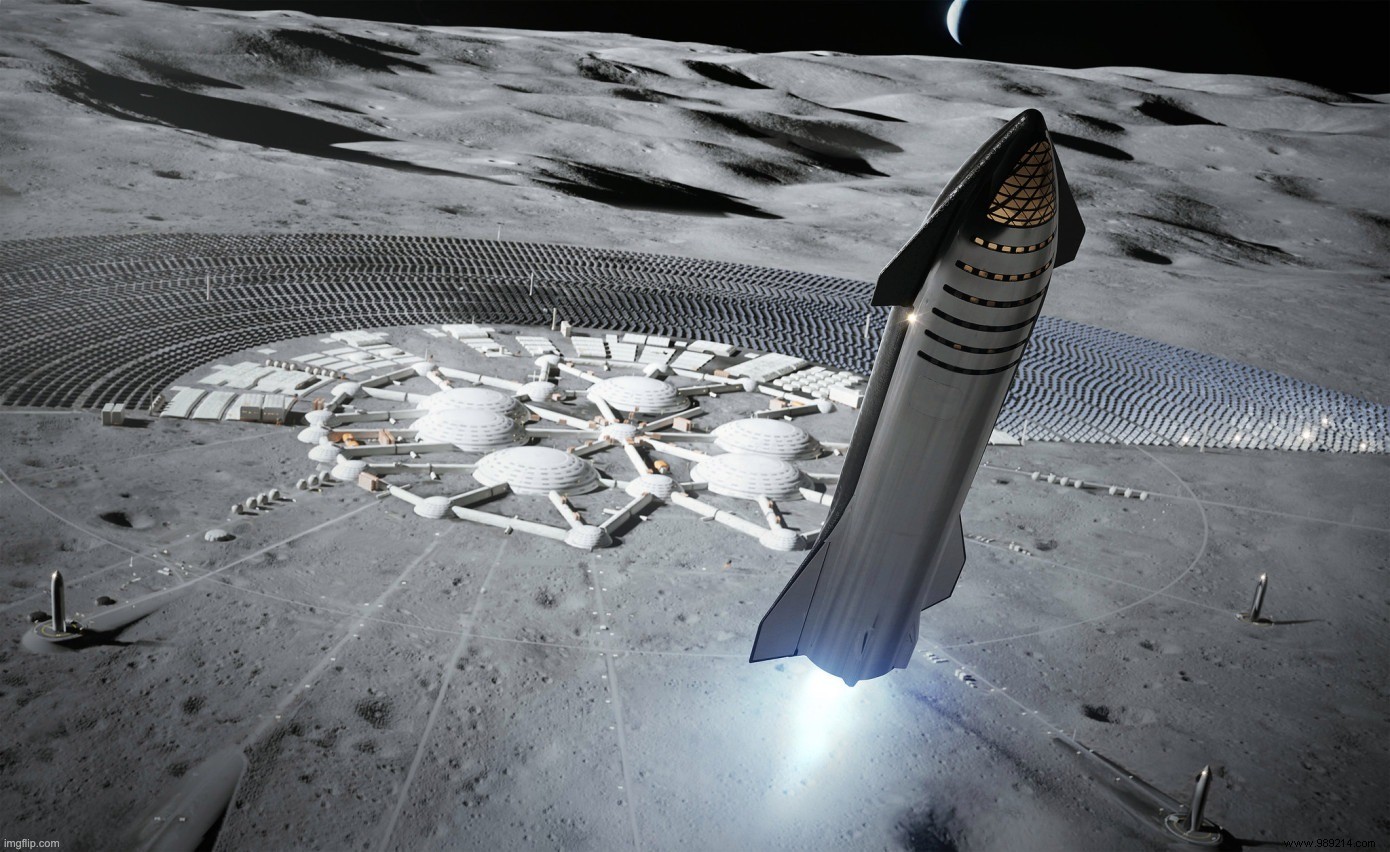The United States Government Accountability Office (GAO) has just rejected Blue Origin and Dynetics' protests filed over NASA's award of a single contract from lunar lander to SpaceX. A decision that Jeff Bezos, boss of Blue Origin, has a hard time digesting.
A few months ago, NASA set its sights on SpaceX to transform its Starship vehicle into an Artemis lander, thus betting on the future. The decision had not been accepted by the two competing companies - Blue Origin and Dynetics - who quickly filed protests with the US Government Accountability Office, pointing out that the US agency should have awarded at least two contracts to maintain the principle of compete in this manned lunar landing program, as she had "promised".
The GAO, which had until August 4 to rule on these protests, finally issued its conclusions on Friday, July 30. According to the government body, NASA did not ""violate any law on public procurement" in deciding to award only one Human Landing System (HLS) to SpaceX, even though the agency has raised the possibility of awarding two contracts in the past.
Furthermore, GAO concludes that the evaluation of the three proposals was "reasonable and consistent with government procurement law, regulations, and terms of the announcement in effect ” .
In a statement, Dynetics officials said they respect the GAO's decision. Despite everything, the company will continue to work on the design of its lander to seize, if it can, future opportunities.
On the side of Blue Origin, however, the pill has a lot more trouble passing. “ Instead of this single-source approach, NASA should adopt its original competition strategy ” , Bezos also wrote in the open letter. “ Without competition (..), NASA will find itself with limited options as it tries to negotiate missed deadlines, design changes and cost overruns. Without competition, NASA's short- and long-term lunar ambitions will be delayed, ultimately cost more, and will not serve the national interest."
“We remain firmly of the belief that there were fundamental issues with NASA's decision, but the GAO was unable to resolve them due to of its limited jurisdiction" , a Blue Origin spokesperson also said in a statement to SpaceNews . “We will continue to advocate for two immediate suppliers because we believe this is the right solution” .

With this chapter finally closed, NASA and SpaceX can now moving forward with a focus on the next human Moon landing. For now, this mission (Artemis III) is still scheduled for 2024.
First, we will have to deal with three structures. A Super Heavy rocket will first launch a Starship into lunar orbit. An SLS rocket will then launch a crew inside an Orion ship. This will dock with the Starship around the Moon. Finally, the crew will be transferred to the Starship which will drop them on the Moon. For the return, it will be the same principle.